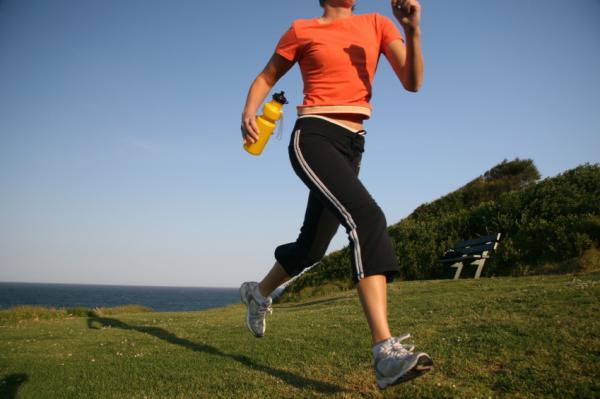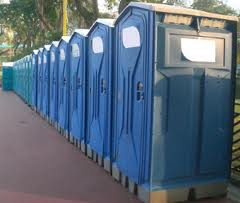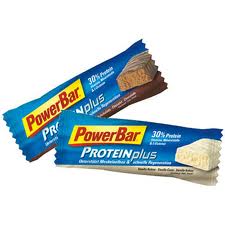
What is it? Those of you who experience it, know it well. It’s when runners have diarrhea during or immediately after a run, or feel an 

What is it? Those of you who experience it, know it well. It’s when runners have diarrhea during or immediately after a run, or feel an 
No matter what time of day, we do need food to fuel us. Whether your goals are achieving optimal performance, weight loss, muscle building, energizing your life – prioritize food as much as you would your workout, training session, or even competition/race.
Early morning workouts in particular seem to pose an extra challenge. I often hear clients and friends say they don’t eat breakfast before a morning workout. I’ve heard every excuse in the book. Too tired to get up even 15 minutes earlier to eat, not hungry, food makes me nauseous if I eat too early, trying to lose weight so don’t need the extra energy, or simply just unaware that it was important.
First, breakfast is ALWAYS important. It kick starts your metabolism, similar to warming up your car on a cold day. This means you will boost your energy level first thing in the morning rather than waiting an hour or more. A side benefit to this is your body will start burning more calories at rest sooner – which can be beneficial for weight loss or maintenance. Breakfast before a morning workout is especially important as you need fuel for your empty tank (or body!). Yes, you will have some energy without putting any food in you beforehand. However – because you haven’t eaten anything for the past 7-12 hours this energy will come from your body breaking down internal stores of fat and muscle. This in turn will leave you feeling fatigued, and result in a decrease in strength and endurance. Making it much more difficult for you to achieve your goals.

I was recently interviewed very briefly by a student reporter on CBC news who did a story all about “exercise supplements”. Watch the short clip here. I would like to clarify a couple things they misquoted me on:
Ever feel fatigued halfway through your workout? Feel like you want to push yourself harder but physically are just unable to? How about that mid-afternoon slump during the workday where you just can’t get anything done? It all comes down to energy levels. And guess what – diet has a huge part to play.
Last week during the second half of an intense cycle class at the gym I was feeling… fantastic! I looked around, and it
made me feel even stronger, because I seemed to be one of the few that was able to keep up with the instructor, an elite cyclist. How could this be? I am in no way an elite cyclist. Yes, I do enjoy biking, I do have a good base level of fitness, and I am determined to regularly challenge my body physically. But I hadn’t been to a cycle class for weeks before this one, yet alone started to commute daily to work by bike (that started this past week when the sun came out!). I am 100% convinced that the reason I could push hard throughout the hour long class was because of my diet. I had a pre-workout snack, yogurt and fruit, high in carbs (our primary source of fuel during moderate to intense activities) just over an hour before my workout, and healthy meals and snacks throughout the day leading up to it. This enabled me to push myself hard, keep up with the instructor, and feel great throughout my workout.
A simple explanation for this – blood sugar levels. When we eat foods, they cause a rise in our blood sugar levels. Our food is digested and some of it (depending on what we eat) is broken down into glucose, or sugar, which gets fed into our cells and used for energy. This is what kept me going during my cycle class. This is also what keeps anyone going during everyday activities. However, when we feel hungry, tired, or just low in energy – this is when our blood sugar levels are below normal. We have no fuel in our bodies for our everyday activities. But our bodies are still functioning – how? By breaking down internal stores of fat and muscle. This in turn causes a decrease in strength and endurance during activities, and the feeling of fatigue and poor concentration at work.
How can we avoid low energy levels and their side effects? By eating small frequent meals throughout the day. Aim to not go longer than 3 hours without eating. This will ensure energy levels are consistent throughout the day – avoiding the spikes in blood sugar or extreme lows in blood sugar, but staying somewhere in the middle, within our normal range (somewhere between about 4 – 8 mmol/L). Here’s a sketch to help you visualize:

What we’re eating also has a part to play. A nutritious, well-balanced diet is key. A diet rich in vegetables and fruit, whole grains, protein, and low-fat dairy products or alternatives (to provide us with calcium and vitamin D).
Everyone is different. Depending on your schedule, your daily activities, or your sport and the intensity and duration of your training sessions – you will need to fuel your body accordingly. What and when you eat are two key things to take into consideration. If you’re an athlete, or even just engage in sport or exercise once in a while – timing, specific nutrient make-up, and size of meals and snacks depends on when you will be engaging in exercise. You want to eat something that will be digested in enough time to fuel you for your activity, but no too far in advance that you have no energy left during your activity. Sometimes it is necessary to top off your energy levels with a high carb snack during your activity, and always necessary to re-fuel with carbs and a little bit of protein after your activity.
No matter what, DO focus on eating healthy foods throughout the day at regular intervals. Nutrition is a powerful tool that can greatly affect how you feel throughout the day, and throughout your workouts or sport!